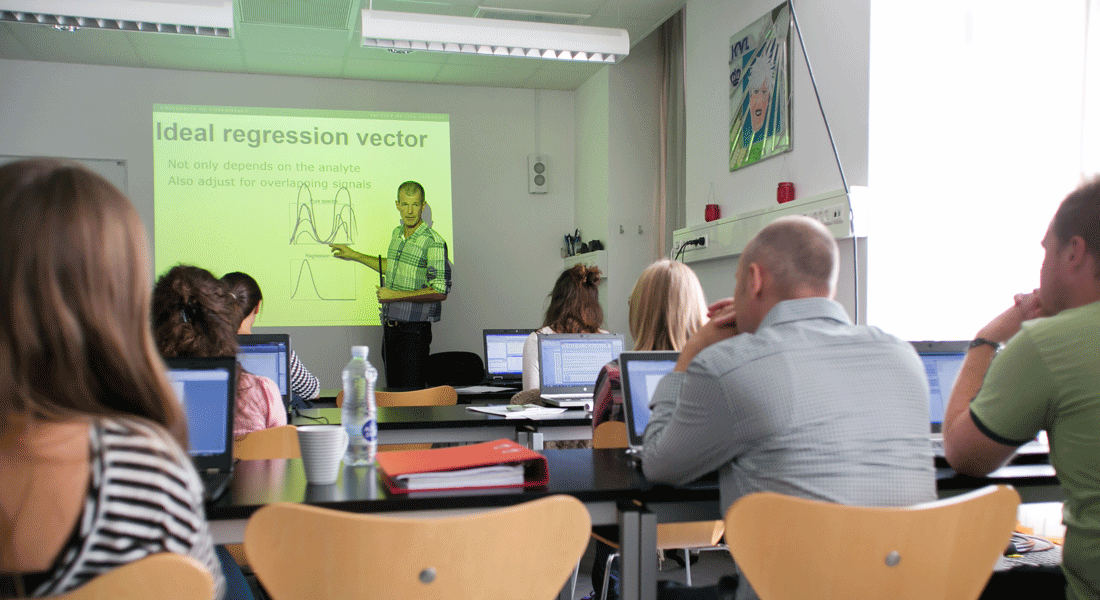New rules for thesis writing in UCPH FOOD’s MSc programmes
The rules for thesis writing in UCPH SCIENCE MSc programmes will change soon, which will affect both students and our partners in the food industry. The time allowed for writing a thesis has been shortened, so UCPH FOOD is working to optimize the organisation so that the benefits that both students and the food industry gain from thesis collaborations will be preserved in the future.

Many students at the Department of Food Science at the University of Copenhagen ( UCPH FOOD), collaborate with the food industry while writing their thesis. Hitherto, master’s students have had 6 months to write a thesis of 30 ECTS and 9 months to write a thesis of 45 ECTS. With the new rules, they have 4 months full-time to write a 30 ECTS thesis 6½ months full-time to write a 45 ECTS thesis.
“You can’t really compare the old and new scheme directly, because the 6 months that students previously had for a 30 ECTS thesis typically overlapped with teaching. What is new is that you can now only be a full-time student while writing a thesis. There is no longer an extension to take concurrent courses, so we expect that students will take their courses in advance, thus allowing them to concentrate fully on the thesis,” says Annemarie Olsen.
More effective thesis writing
To meet the challenges of the new rules, UCPH FOOD has undertaken a survey of current graduate students as well as recent graduates to illustrate how to best optimise the thesis process and thus maintain the fruitful collaboration between many students and companies that exists today.
“From the responses to the survey, it is striking to see that the scope of the practical/experimental work is incredibly diverse – the students indicate that they spend 0 to 22 full-time weeks on it. In addition, many do not determine the scope and type of work they will do until quite late in the process,” says Annemarie Olsen.
The students choose the topic and supervisor many weeks before they begin working, which is why Annemarie Olsen believes that an early definition of the content and scope of the practical work for the theses is very low hanging fruit that will benefit both companies and students.
“To reduce potential challenges with the implementation of the new rules, I would like to encourage students, supervisors and industry partners to be more concrete early in the planning phase and have even more focus on aligning expectations for the thesis,” says Annemarie Olsen.
Possibilities for writing larger theses
A number of students have been concerned about the new rules and wanted more time for the theses so that they can get deeper into the issues they want to work with. Therefore the department has been working to change the curricula so that student also have the opportunity to choose larger theses of 45 ECTS.
“We are listening to both students and companies and, in the study curricula where we have already been able to implement these options, the students can now freely choose between a 30 and a 45 ECTS thesis,” says Annemarie Olsen.
So far, the new opportunities apply to MSc students in Food Innovation and Health and students who have chosen the general specialisation in Food Science and Technology.
“We are working towards creating the same opportunity for dairy students in the Food Science and Technology MSc programme and we expect this will be an option for students starting the MSc programme in September 2021,” says Annemarie Olsen.
New optional project in preparation for the thesis
It is also possible to take a so called “project outside the course scope” in relation to the thesis.
“It may be that a student, for example, is interested in developing a new product. Then product development could be a project outside the course scope and the consumer study itself can be the thesis. There must simply be, for example, separate data with separate focus areas. It is an option that only few students currently use, but it is actually a really exciting possibility,” says Annemarie Olsen.
Topics
Related News
Contact
Kommunikationsmedarbejder Lene Hundborg Koss, KU FOOD, lene.h.koss@food.ku.dk
